Fordham Democrats and Republicans Comment on Upcoming 2020 Primaries
Democratic candidates for president include Senators Kamala Harris (CA), Amy Klobuchar (MN), Cory Booker (NJ) and Elizabeth Warren (MA). (Courtesy of Flickr)
February 13, 2019
By Eliot Schiaparelli
The first presidential primaries and caucuses will not be held in Iowa and New Hampshire until early next year, but presidential hopefuls are already officially announcing their candidacies.
For now, Republican incumbent President Donald Trump will carry the banner for the GOP, since none have declared intentions to run for the party, but many Democrats currently have no idea who their nominee is likely to be in 2020.
As of February 2019, the most notable candidates to announce their campaigns include Senators Kamala Harris (Calif.), Amy Klobuchar (Minn.), Cory Booker (N.J.) and Elizabeth Warren (MA). Julian Castro, the secretary of housing and urban development under President Barack Obama, has also announced his candidacy.
Other noteworthy figures, including former Vice President Joe Biden and Senator Bernie Sanders (Vt.) have been weighing a potential presidential run, but have not yet officially announced their intentions.
Mike Fissinger, FCRH ’21, is the vice president of Fordham College Democrats. He said candidates like Sanders and Biden have the luxury of waiting to enter the race because they already have national name recognition.
“At this early point, name recognition really comes into play,” Fissinger said. “The point of a campaign for many lesser known candidates is to do away with that, but everyone knows who Joe Biden is and that gives him a big advantage.”
Fissinger also said fundraising is key to a successful campaign. He pointed to Harris as an example of impressive fundraising.
After Harris announced her bid for the presidency on Jan. 21, coinciding with Martin Luther King Jr. Day, she raised $1.5 million in donations from individuals in all 50 states.
The number of Democratic candidates participating in the 2020 primary could potentially be in the double digits, and the Democratic National Committee has already started planning debates.
In the lead-up to the 2016 presidential election, the Republicans had a similarly crowded field and chose to split their debates into two sessions – an “undercard” for the longshots followed by a second “primetime” debate for the candidates leading in the polls.
This was done to ensure that everyone would get enough time to speak and differentiate themselves and their positions from the other candidates.
Rick Santorum talked about the format during an undercard debate.
“It wasn’t advertised significantly. In fact, the entire hour leading up to this there was no conversation about any of the four people on this debate stage, and that is the chronic situation,” he said.
According to a DNC press release, the first Democratic debates will be held in June and July 2019. If the field is big enough, the party said they would hold their debates on two consecutive nights. If debates are held over consecutive nights, the line-up for each will be chosen randomly rather than based on polling. Fissinger said he believes that the high number of candidates will make the race interesting.
“The Republican field was like this in 2016, and it will probably be about the same size,” Fissinger said. “So how the candidates differentiate themselves will be very intriguing. A lot of them have similar policy issues and focuses.”
Qualifications for the debates themselves will be based on objective measures such as polling and grassroots funding.
Over the next year, candidates will visit early primary states like Iowa, New Hampshire, South Carolina and Nevada, and they will be working hard to raise money for their campaigns.
Fordham College Republicans secretary Tim Kyle, FCRH ’21, said Democrats need to be wary of a split in their party between the moderate and progressive wings.
“I think there’s the possibility — if the Democrats do what they did in 2016 and support one candidate obviously over another — you might see a lot of Democratic voters staying home,” Kyle said. “I think if the primary is particularly bruising, you also might see some more Democratic voters staying home.”
Kyle also said President Trump will be keeping an eye on the Democratic candidates.
“I think Trump would do best against someone with personal foibles. President Trump loves attacking people personally, so someone he could paint someone as a liar or a crook,” Kyle stated.
Fissinger said he thought Democrats were off to a good start when it came to civility.
“As of now, the candidates who have already announced are doing a great job of being very civil and friendly toward one another,” Fissinger said.
“When one candidate hops into the race there seems to be a Twitter or social media response from all the other candidates, saying ‘good luck.’ A lot of them are friends from being in the Senate together and everything, so I think we’re off to a good start and I hope it doesn’t become divisive or anything.”
Fissinger also said issues like gun control, healthcare and climate change will play a big role in the primary. According to Fissinger, which issues candidates choose to champion and bring to the forefront of their campaign could make or break them. He also said candidates will have to show authenticity and have a good answer as to why they are running.
He said Warren has already started to do this. “Elizabeth Warren is setting herself up as someone able to stand up to corruption,” Fissinger said.
“Warren has made a career out of it and seems to be making her campaign about fighting against corruption in government and against a revolving door of lobbyists. So she has a very clear message from her career and campaign.”
Kyle said he thinks Trump would do best against a more radical Democratic nominee who fails to win the support of the whole party base. “The Republican party will be focusing on the economic growth we have seen under President Trump,” Kyle said. “I think a lot of the Democratic candidates are running more as progressives, and people who would be considered far left by many Americans.”
According to Kyle, the most dangerous candidate for Trump to face would be someone more moderate. Both Kyle and Fissinger agreed that their parties need to unite behind their respective nominees.
“There’s clearly some dissent in the Republican Party,” Kyle said. “President Trump hasn’t pleased everyone. But I think the party understands it’s important to remain united behind one candidate. If the vote is fractured, then there’s no chance of winning reelection in 2020.”
“I think in light of the past two or three years of the Trump administration, I’m hoping and I have faith in the Democratic Party that regardless of who wins the primary, the candidates will be able to come together and bring their supporters with them to unite around whoever the nominee is so we can beat Trump,” said Fissinger.
For the time being, each club will monitor and discuss the primaries. “We’re just going to wait and watch,” Kyle said. “We hope to engage in some good debate and conversation with our college Democratic counterparts and see what they think. Pick apart some policy issues and help forward the discussion about some hot button politics.”
During the primary, the College Democrats will not endorse a specific presidential candidate, but they will hold debate watch parties and support whoever becomes the Democratic nominee come 2020.

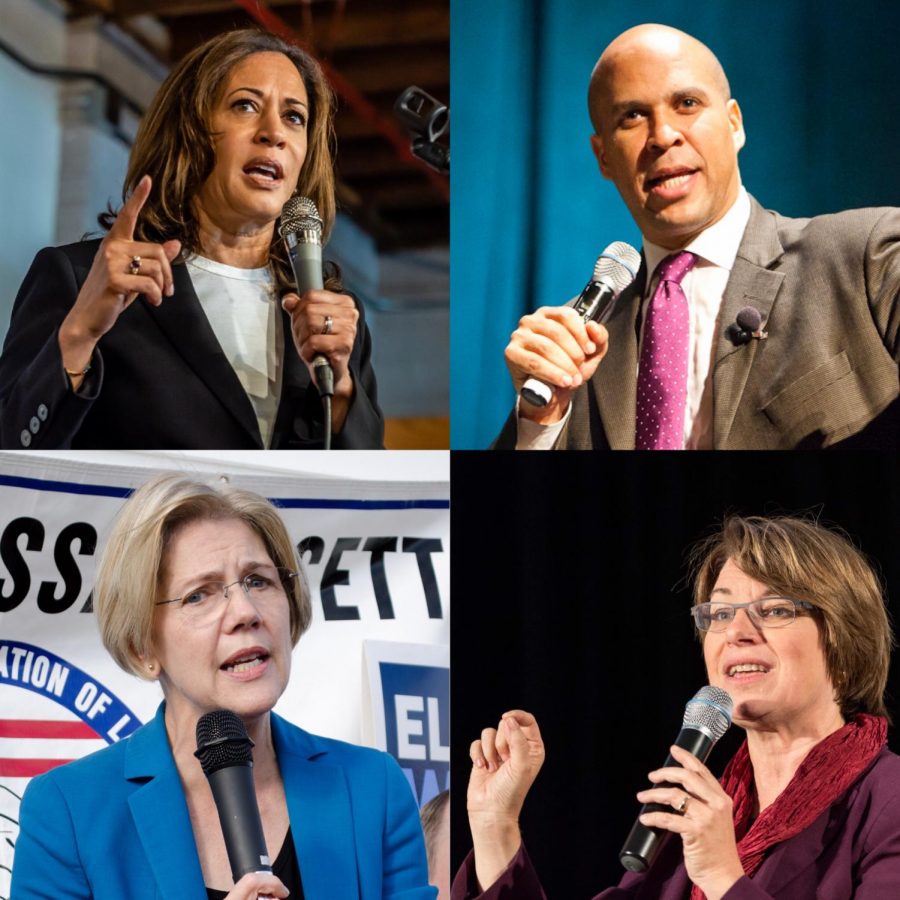


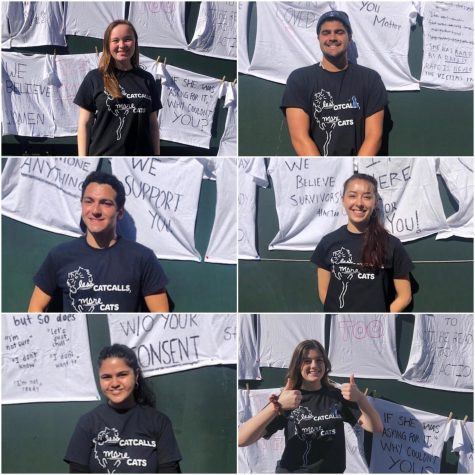
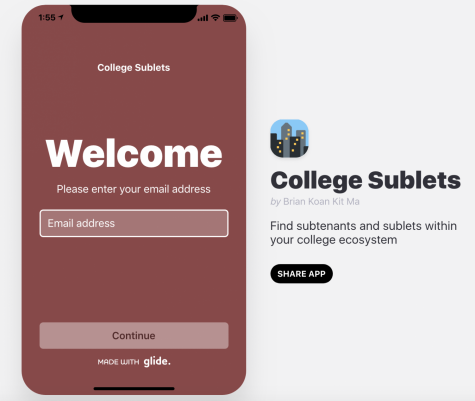
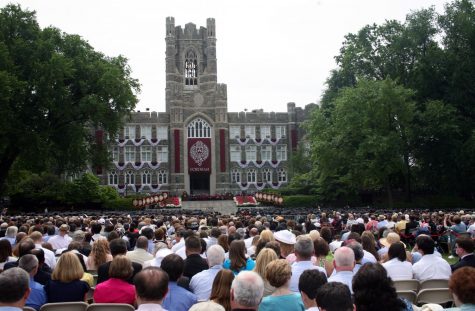

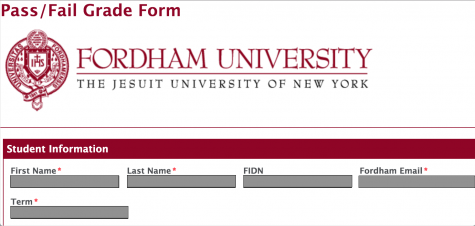

If you want a picture to show with your comment, go get a gravatar.